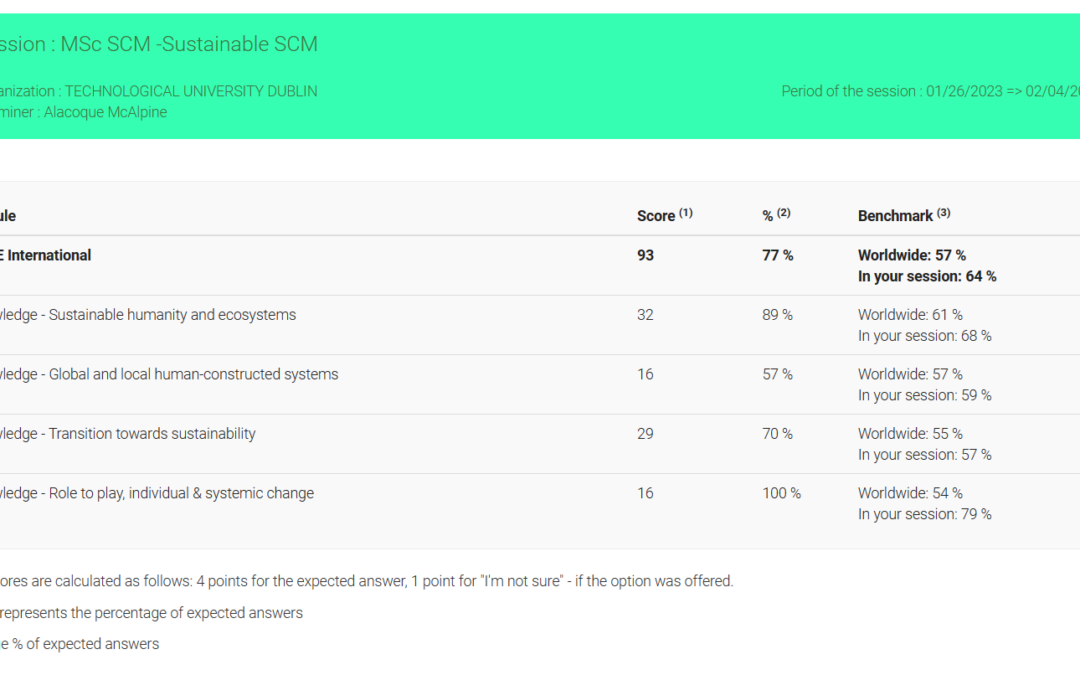As the pace of change accelerates in a variety of sectors, including technology, culture, and the natural environment. Organizations, industry, and the government are all growing more linked. One of the major issues highlighted by the UN is the lack of knowledge about sustainability. We were given the task of attempting the Sustainability Literacy Test (SULITEST), which is used to broaden sustainable knowledge, skills, and mindset. Before taking the test, I was familiar with the UN Sustainable Development Goals (SDGs) goals that we discussed in the logistics and SCM Fundamentals module, and we recognized how supply chain management plays a crucial role in accomplishing these goals.
This is the first study of its kind to provide a comprehensive explanation of sustainable humanity and ecosystems, global and local human-constructed systems, transitioning to sustainability, and the role of individuals in systemic and individual change. Some of the questions were crucially significant, and awareness of them was necessary to comprehend the UN’s objectives. I scored 93 (77% of expected answers) on the CORE International section and 64 (80% of expected answers) on the SDG 12: Circular Economy (UN Environment) section of the examination. I reviewed my test and took notes on CSR, which is a growing trend as per (Slack et al., 2022), UNESCO’s role in the education sector (Annelin & Boström, 2022), the impact of climate change, etc. done to attain UN goals.
It presented me with new perspectives for not only analysing the current problem in supply chain sectors but also resolving it from a sustainable standpoint. As an active member of an NGO (back in India) and TUD’s Sustainability Society, I have the opportunity to introduce this test to other students and professionals, which would give them a broad perspective of sustainability and why it is important to have it included in their courses and work environment. I am looking forward to this module to learn and implement how firms may gradually introduce sustainable supply chain management into their current situations to identify important sustainability impacts, analyse risks, and define action areas.
References:
- Annelin, A., & Boström, G.-O. (2022). An assessment of key sustainability competencies: A review of scales and propositions for validation. International Journal of Sustainability in Higher Education, 24(9), 53–69.https://doi.org/10.1108/IJSHE-05-2022-0166
- Slack, N., Brandon-Jones, A., & Burgess, N. (2022). Operations management (Tenth edition). Pearson.

